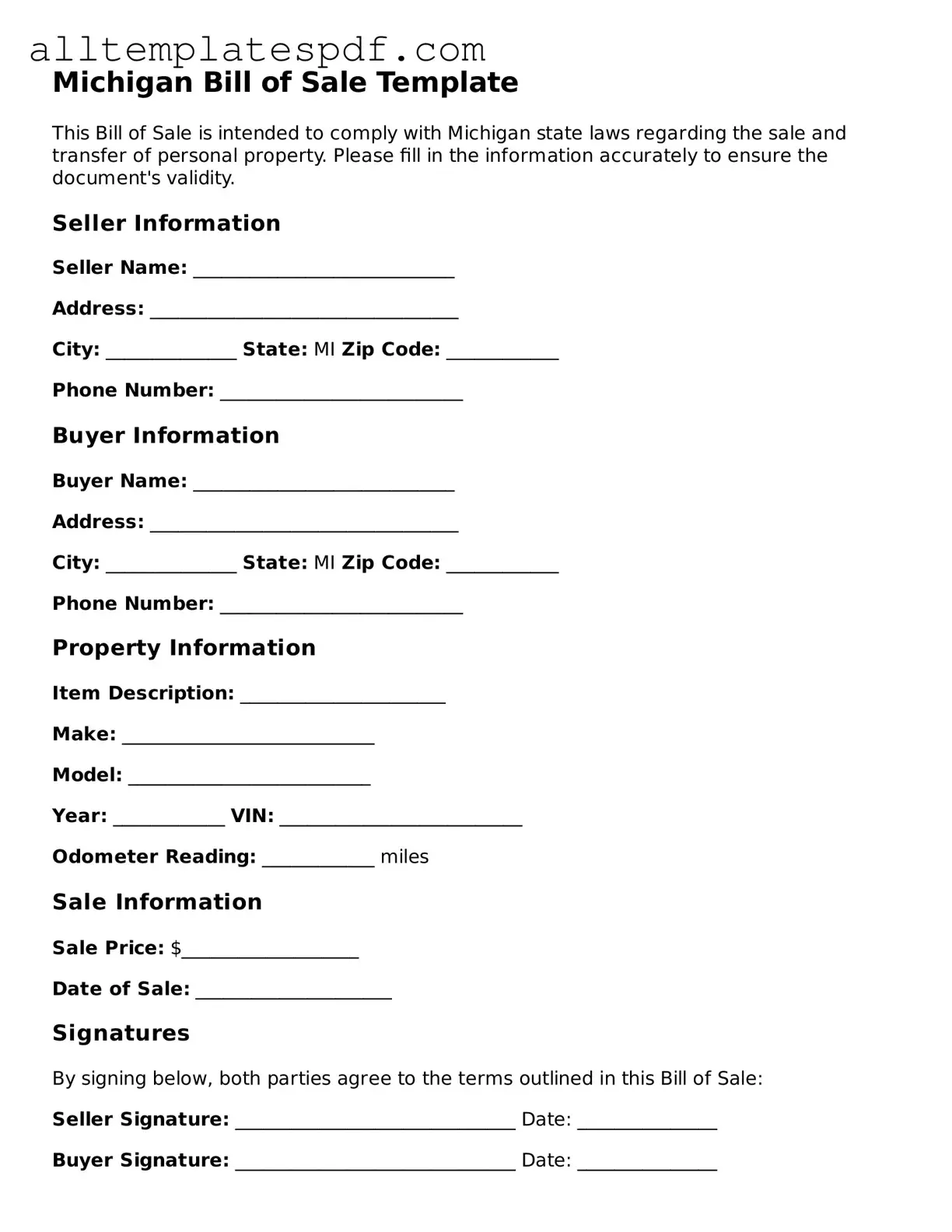Filling out the Michigan Bill of Sale form can seem straightforward, but many people make common mistakes that can lead to complications later on. One frequent error is not providing complete information about the buyer and seller. It’s essential to include full names, addresses, and contact details to ensure that both parties are clearly identified.
Another mistake is failing to accurately describe the item being sold. Whether it’s a vehicle, boat, or other personal property, the description should be detailed enough to avoid confusion. This includes the make, model, year, and any identifying numbers like VIN for vehicles. Without this information, proving ownership can become problematic.
Many individuals overlook the importance of including the sale price. Leaving this section blank or writing “N/A” can create issues, especially if there are disputes later. It’s vital to state the exact amount agreed upon to ensure transparency and clarity.
Some people forget to date the Bill of Sale. A date is crucial as it marks when the transaction took place. Without it, there could be disputes regarding the timing of the sale, especially if issues arise later.
Not having the document signed by both parties is another common mistake. A Bill of Sale is not legally binding unless both the buyer and seller sign it. Ensure that both signatures are present to validate the transaction.
Using incorrect or outdated forms can also lead to issues. It’s important to use the most current version of the Michigan Bill of Sale. Always check for updates to ensure compliance with state requirements.
Another error is neglecting to keep a copy of the completed Bill of Sale. After the transaction, both parties should retain a copy for their records. This can be helpful if any questions or disputes arise in the future.
Some individuals may not understand the implications of the Bill of Sale. It’s more than just a receipt; it serves as proof of ownership transfer. Failing to grasp this can lead to misunderstandings about the rights and responsibilities of each party.
Lastly, people sometimes rush through the process without reviewing the completed form. Taking a moment to double-check for any errors or missing information can save a lot of trouble down the line. A careful review ensures that everything is accurate and complete.
By avoiding these common mistakes, individuals can make the process of completing the Michigan Bill of Sale smoother and more effective. Proper attention to detail will help ensure that the transaction is clear and legally sound.

